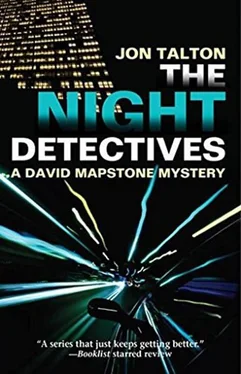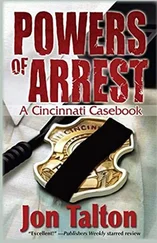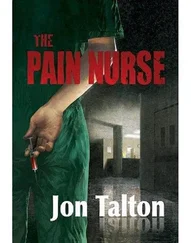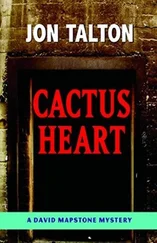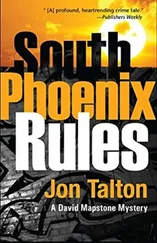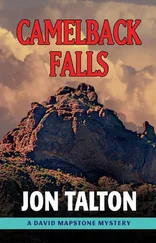“Not after you break the force in two long wars,” he said. “And drop recruiting standards. And have a black guy as commander in chief, which has brought out all the whackos. You remember the group they arrested in Georgia? Five soldiers were stockpiling weapons. They wanted to poison the apple crop, set off bombs, and overthrow the government? Thank God for stupid criminals.”
“Until some smart criminals show up,” I said. “So I assume Cartwright’s bosses will be on this.”
Peralta shrugged and we rode the rest of the way in silence back through the antic monstrosity of the suburban asteroid belt and into Phoenix. It might have been quicker to take the Loop 101 down to the Papago Freeway but Peralta stuck to surface streets. What were all these people doing out? Driving was the local sport.
Outside the office, he shifted the truck into park and turned to face me.
“Mapstone, I know you’re not yourself, but…”
Peralta’s voice trailed off. He set his jaw and turned forward.
I got out. He drove off.
A few minutes later I returned home, eating a Popsicle to cool down and brooding. For the first time in my life, I had come close to being the worst thing possible in law enforcement: a hot dog. Cartwright was Peralta’s play and I should have stayed in the shadows, let him handle it, and listened. I had allowed Cartwright and my anxiety over the baby to strip away my professionalism, send me into a tantrum with a loaded gun. He was going to get the idea that he couldn’t count on me, never a good place to be with Peralta.
But the reality was that Peralta wasn’t getting anywhere and Cartwright was holding back. Now I knew about the stolen Claymores but the connection from there was tenuous. The idea of white supremacist cells in the military was frightening. Some future Gibbon would write about that. For much of America’s history, the nation had frowned on large standing armies. Now it was part of our economic policies and if you didn’t “support the troops,” you were a commie. And how all this tied in to Grace, Tim, and baby David, I did not know.
I was still running out of time. Sure, every law enforcement agency in Southern California would be working this case. But it was on me. That, at least, was how my concussed brain parsed it.
I checked the Amber Alert for the tenth time that day. The baby was still missing. He hadn’t been in the apartment when I went through it. That much I was sure of. I was also certain that this was no child-custody issue but a kidnapping. Soon the FBI would come knocking. I was, after all, not merely a washed-up historian of cold cases. I was an expert on lost children.
But there would be nothing helpful I could tell them. My lost child was the one conceived with Lindsey. The child that never made it past four months in her womb before the miscarriage. Lindsey fled to the job in Washington, insisting that Robin continue to live here. Her only demand of me was that I keep Robin safe, a task at which I had failed. Now they were all gone and a house I had expected to be filled with unaccustomed baby sounds was silent. There was no Amber Alert for our loss.
These were thoughts I had become a master at stuffing in a closet of my brain and locking away. Patty had complained that I lacked the discipline to write serious history. She didn’t know how disciplined I could become. I hardly cried now. It helped that I had hidden away all the photos of Lindsey and Robin. I didn’t speak of it. No pity party for me. I didn’t want Sharon Peralta to shrink my head, get me in touch with my feelings. Those would kill me. I was not special. The world was a planetary engine fueled by loss. Some things could never be made right.
At the Sheriff’s Office, one of the cardinal rules of “incident command,” say a hostage situation, was “stay in your own lane.” One of Peralta’s commandments was to avoid what he called a jurisdictional goat fuck. We were gone from the Sheriff’s Office, and yet I knew he still thought that way. So I tried to choose a lane to make my own, take one of the many strands that had dropped on us in the past few days and follow it.
That would be the suspicious death of Grace Hunter.
Putting the Mac to sleep, I moved over to the leather chair, the police files of Grace Hunter’s death on my lap. My body gradually cooled off from the hike through the desert to Cartwright’s bunker. From the study, I could see the big picture window of the living room and I dawdled, staring out at the lush shady landscape of the street. Phoenix had done so many things wrong as a city. One of the things it had done right was preserving some of the old neighborhoods such as Willo.
I meditated on all the things I had done wrong in San Diego. Whores always lied. This was something I had learned as a young deputy. Most had drug habits. Most had children. So much could go wrong in their lives. Telling the truth was an occupational hazard. I should have interrogated Tim in much more depth. Who knew if Grace was even telling him the whole story? On the other hand, I had never dealt with high-priced call girls. Yet something told me the same operating procedure, the lying, applied. Many of them were victims. Some were not. None had a heart of gold, whatever Tim’s conviction that she wanted to leave the life and be a mommy in Ocean Beach.
I should have gotten much more information about both Tim’s and Grace’s pasts, should have asked to see her computer and especially her emails. When she didn’t come home that day, did he try to call or text her? I failed to ask. Did they have any friends in town with whom they socialized, besides her girlfriend Addison? Had any new neighbors moved in, or were there folks they had recently started to hang with, and had any taken an interest in Grace? I didn’t know.
I had assumed we would have more time for a follow-up, a foolish supposition considering that our first client, the one who had launched us on this quest, had been gunned down outside our office. Most of all, I should have waited until Tim was safely in his car with the baby and driving out the alley and toward the freeway to Riverside and his parents’ house. I was not at the top of my game.
The police files had a familiar feel. Every department used standardized reporting now. But the information from my first spin through the paperwork showed me I wasn’t the only one who had made mistakes. I pulled over a legal pad from the desk and started making notes.
On April twenty-second, the first emergency call came in at 11:54 p.m., a woman had fallen or jumped from a condo balcony. It was placed by another female who had been with her boyfriend in the Jacuzzi by the pool. Grace landed no more than twenty feet away and the caller was sure she had come off the nineteenth floor. The woman lived on twenty and her balcony was distinctive because of its hanging plants.
The first units to arrive, three minutes later, were a fire department engine company, then, five minutes after the first call, a paramedic unit. Grace was obviously DOA. All the witnesses agreed she was nude and handcuffed from behind.
Unfortunately, the building’s night concierge was there, too, and opened the condo door for the firefighters. And they walked right in, finding the place empty, and the door leading to the balcony open. Uniformed police got there six minutes after the call, which had originally been routed to the fire department as a medical emergency. That’s not surprising. The woman in the Jacuzzi was probably hysterical when she made the call and was perhaps assuming, with the hope of the traumatized, that Grace was only hurt. But it was several minutes before the officers could secure the condo.
That meant the first investigator to arrive, Isabel Sanchez, the “night detective” to use Peralta’s lingo, was already facing a contaminated scene. I thought about Peralta telling me she was a looker, how it would do me a world of good to get laid. What would my opening line be? “Hi, I’m David and I’m concealing evidence. What’s your sign?”
Читать дальше
